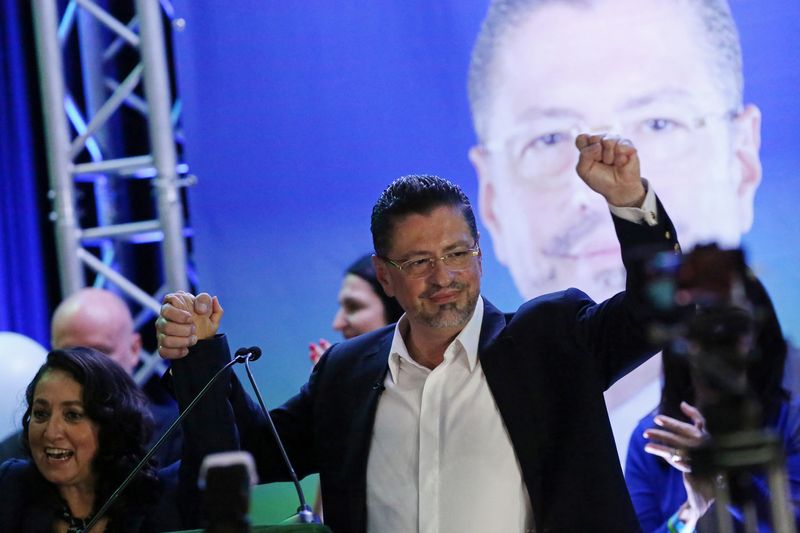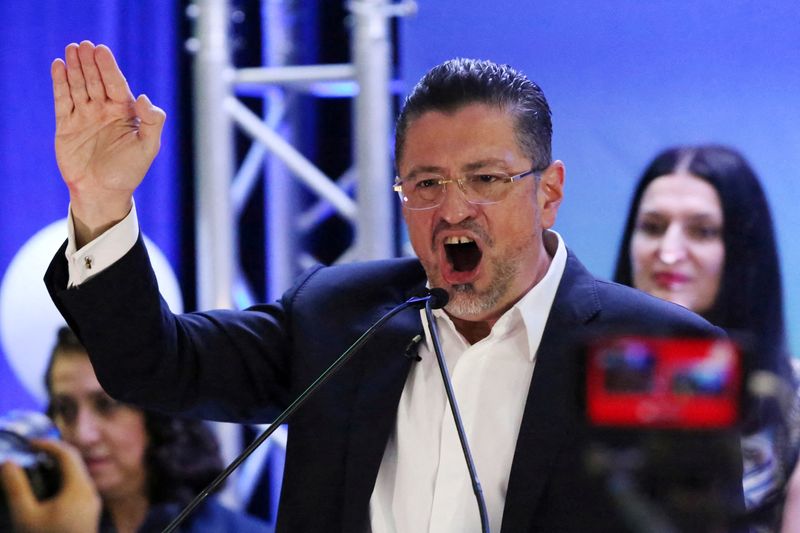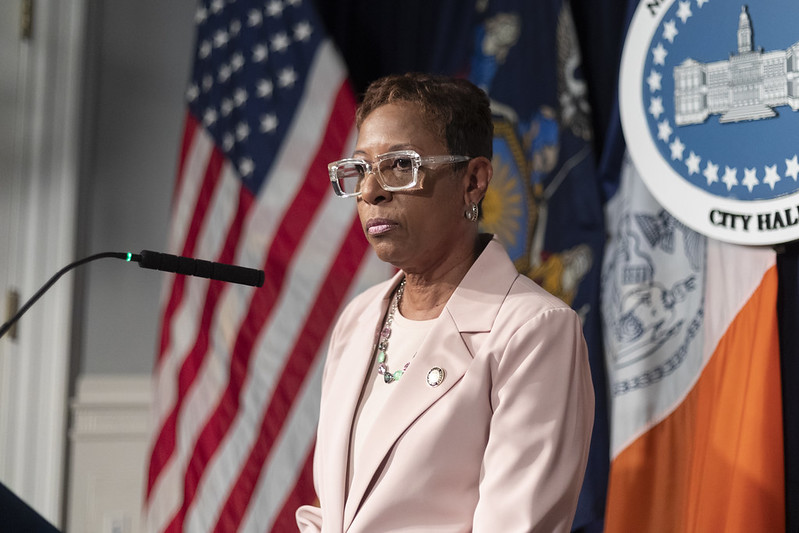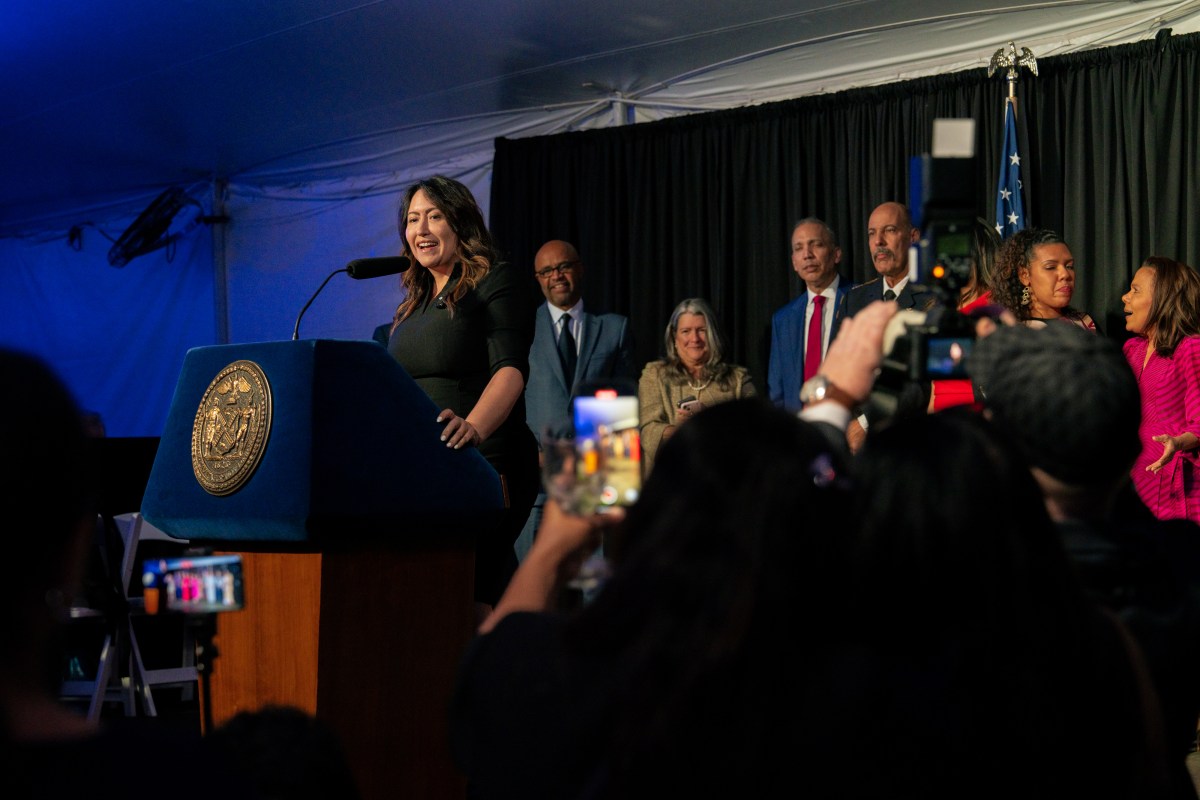SAN JOSE (Reuters) -Incoming Costa Rican president Rodrigo Chaves on Monday vowed to rework a $1.78 billion financial support package from the International Monetary Fund (IMF), arguing the current agreement was “not ambitious enough.”
Chaves, a former World Bank economist who upset decades of political consensus in the Central American country with his victory in Sunday’s presidential election, said the deal struck with the IMF last year for Costa Rica was “indispensable.”
“We’re not going to loosen the commitment to responsible and healthy public finances,” Chaves told reporters at a news conference in downtown San Jose. “We’re going to add things to it, we’re going to make them more robust.”
The 60-year-old did not give details of what he planned to change in the IMF deal, which aims to help Costa Rica consolidate its finances after years of mounting debt.
He is due to take office on May 8.
Chaves, who spent 27 years at the World Bank before stepping down in 2019 following allegations of sexual misconduct, sought to underline his economic credentials during his election bid. He has repeatedly denied the misconduct allegations.
Running an anti-establishment campaign, Chaves vowed to use referenda to sidestep a fragmented parliament, and to help the poor by keeping down the price of basic goods in Costa Rica, long seen as one of Latin America’s most stable democracies.
The country agreed its deal with the IMF in January 2021.
In exchange, the government vowed to adopt a raft of fiscal changes and austerity measures to stabilize finances. But the parliament has so far made little headway on them.
VOTE FOR CHANGE
In his victory speech, Chaves extended a hand to the opposition as he defeated former president Jose Maria Figueres by about 53% to 47% in a run-off vote.
“Tonight, let’s set aside the party colors that can easily divide us,” Chaves told dozens of cheering supporters in the capital, San Jose, on Sunday night. “I humbly ask you that we unite beneath the blue, white and red of our national flag.”
Chaves will take office with his Social Democratic Progress Party (PPSD) holding just 10 of the national parliament’s 57 seats, while the party of Figueres, who came first in an indecisive first round vote in February, has 19.
At 57%, turnout was the lowest in decades, reflecting apathy among many voters in Costa Rica, where straitened economic times have fueled disenchantment with the political class.
Chaves’ policies, his combative style and confrontational approach to the media have drawn comparisons to other anti-establishment leaders in the Americas, including former U.S. president Donald Trump and Brazil’s leader Jair Bolsonaro.
In the end, a belief that Chaves could deliver a fresh start for Costa Ricans proved decisive in seeing off the challenge of Figueres, who was president from 1994-1998 and is a scion of one of the most powerful political families in the country.
Still, in his victory address, Chaves namechecked Figueres’ father, three-time president Jose Figueres Ferrer, as he sought to win over opponents to help him govern.
Many Costa Ricans, who in the past two decades have seen unemployment steadily creep up, inequality rise and the country slip deeper into debt during the COVID-19 pandemic, hope he can.
“We should all work together to move the country forward,” said Pedro Hernandez, a businessman.
Chaves is not a complete newcomer to politics. He briefly served as finance minister under outgoing president Carlos Alvarado, who by law cannot seek immediate re-election.
NICARAGUA
Chaves also said his government was minded to appoint an ambassador to neighboring Nicaragua.
Alvarado has strongly criticized Nicaraguan President Daniel Ortega and did not recognize his re-election in November.
He also never sent the ambassador he appointed upon taking office in 2018, the year protests broke out against Ortega, which fueled major emigration of Nicaraguans to Costa Rica.
“We must have relations with all our neighbors,” said Chaves, who argued he would consider not recognizing Ortega if Nicaragua was ejected from the Organization of American States.
A U.S. senior official said in February Nicaragua was “on a road to expulsion” from the organization which put out a series of resolutions condemning what it said were human rights violations after the country’s elections last year.
(Reporting by Diego Ore and Alvaro Murillo; Editing by Gerry Doyle, Alistair Bell and Richard Pullin)























